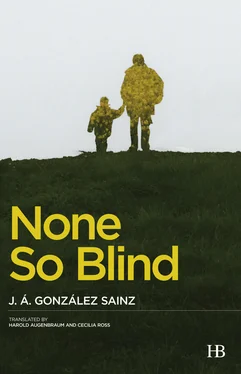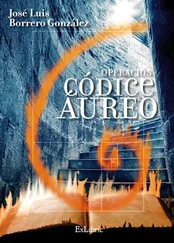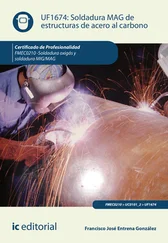“And this,” she would point to a piece of furniture or a household appliance, “you’ll want to keep this, too, right? Just like you guys keep everything. A traitor, you’re just a traitor and a fascist, standing there like some halfwit in the town square embarrassing me in the eyes of the whole world. Your husband, they would say to me, there’s your husband, you wouldn’t want anything to happen to him. We don’t even understand how you can be with someone like that. But you don’t know anything, do you, you don’t know what you owe me and Juanjo, that you owe us even the very breaths you’re still able to draw, because you know so little, all you really know is how to play along with the people who exploit you and exploit our people.”
Our people, our culture, our identity, and our language, us, us and them — how many times had he heard it all repeated by her and his son and so many other people? And in reference to anything at all! You might say there was nothing that couldn’t eventually lead to that. At first, in light of what was evident to everyone no matter how ridiculously difficult it might at times be for them to accept it, as was often the case with self-evident things, he had a hard time not bursting out laughing; but what language, what identity, he would wonder as he listened, and he thought she’d get over it, that no one could go on being so sanctimonious with such litanies for long, and she least of all. Then, little by little, perhaps in the interest of self-preservation, he began to let it all roll off him, like water off a duck’s back, as if it didn’t mean anything significant, really; let them do as they like, he would say to himself, if it makes them happy, to each his own. But in the end he began to realize that more than meaning or not meaning something or having any greater or lesser foundation, those notions were above all whatever certain people wanted them to be or to mean, that they were basically weapons that they tossed around, that they wielded, that they used to feint, weapons with which they would later shoot to kill. That’s when he began to hang his head and try to slip away every time she or his son spoke them or he heard anyone else saying them.
The people , in particular, was an expression that never stopped coming out of her mouth, the people this, the people that. And exploitation, too, and oppression, process, the process of liberation, and awareness-raising, and decision-making, and suffering, as well, suffering inflicted on the people and on the people’s political prisoners and even on their language.
“I think it’s actually you who has no idea what you’re talking about, you’re the one who’s got her head completely mixed up, like all those people, but have it your way.”That was all he could bring himself to say to her. But most of the time he didn’t reply at all, he just let her talk, let her shout, let her get it all out, stood by as she let loose with broadsides of insulting and offensive remarks and began spouting off speeches in terms whose real meaning he doubted very much she’d ever stopped to think about. Patient, calm, like when you’re waiting for a storm to pass and there’s nothing else you can do, he would remain there, waiting, with an odd, somehow liberating restraint, impenetrable at times, his head usually bowed, his mouth shut, his melancholy-filled eyes, nevertheless, completely open.
But suddenly that last day, as if he had instantaneously reached the limits of his restraint and, without warning, the ample cup of his patience had overflowed its rim, he got up abruptly, so abruptly that he knocked the chair in which he had been enduring the habitual torrent of insults over onto the dining room floor, and he made a beeline for the sideboard. He yanked open a drawer — Asunción stood there stark still, frozen in astonishment — and without saying a word, he began rifling through it until he came across the tape measure and the chalk from his wife’s old sewing box. Then he began to move the table and chairs to either side of the dining room, dragging them with uncharacteristic rage and ferocity, not caring that he was making enough noise to wake the devil, and availing himself of the newspaper from the day of the industrialist’s release, without stopping for breath, he set to sketching out on the floor in one corner of the room, with mathematical precision, the edges that formed an outline analogous to the hole in which the man, pleading with his jailers to kill him already, had spent almost a year of his existence buried underground.
Half squatting, half kneeling on the floor tiles — the table and chairs were piled up in a jumble next to the television — he drew a rectangle in the corner of the dining room, thirteen feet, nine and one-third inches long by two feet, five and one-half inches wide, and once drawn, once the shape was completed and not a single inch was missing, he went over it again, diligently, painstakingly, until the chalk was completely spent in his hands, all the while repeating, over and over again, like a record with a skip, thirteen feet, nine and one-third inches long by two feet, five and one-half inches wide.
When he’d finished (two of the sides of the rectangle were formed by the right-angled walls of the dining room, and the others by just the chalk lines), he got up, regarded it for a few seconds that could have been an eternity — you might say that he put the space into his eyes — and he told her to get inside. He said it the first time with a strange calmness, get inside, would you, please, he said to her, come on, get inside, but since Asun only stared and stared at him as if he had suddenly lost his mind, he said it again, in almost exactly the same tone of voice — get inside, Asunción, would you, please, get inside — after which, since she still remained impassive, unable to believe what she was seeing or hearing, he shouted it suddenly in such a sharp tone of voice, so aggressively and unexpectedly violently, that there was nothing for her to do but to do what he said and step at once into the chalk rectangle.
“OK,” he went on, having regained his calm, “OK. Now, imagine that where there is a chalk line, instead of the chalk line there is a wall, a solid wall, windowless and damp up to the ceiling, and it closes everything off and you can’t see or hear a thing beyond it. Imagine you’re not here, but there, inside, shut up between those walls, and you don’t know where you are or what you’re under or how deep you are, and now imagine time passing there. Start breathing, that’s right, now start breathing with more difficulty and imagine that you’re in there one day, then another day, and then another day, until a week that you can’t even tell is a week goes by with you in there, shitting and pissing into a pot that someone will collect from you when they bring you your rations, and you in turn stretch to reach up and give them your pot of feces with the same hand you then use to grab your rations, and it’s like that one day, and the next day, and a week, and then another week, and you try at first to take those four steps; go ahead, do it! I told you to do it! Do you hear me? Take those four goddamn steps! That’s it, again, and again, ten, a hundred, a thousand, two thousand, a million times so you don’t go crazy, so you don’t spend the infinity of every moment stretched out on your cot looking up at a bulb that’s always lit right over your face or hearing nothing but the hammering of desperation in your brain, the dripping of time in your brain, and the banging in your brain or maybe of your own head against the wall and the weakened tangle of your body falling onto the cot again and again, one day, and another, and another, for more than three hundred days. Did you hear what I just said?” he shouted. “Did you hear what I just said? Or maybe you don’t have ears or eyes or a heart anymore, just an idiotic anger rotting you from within?”
Читать дальше












